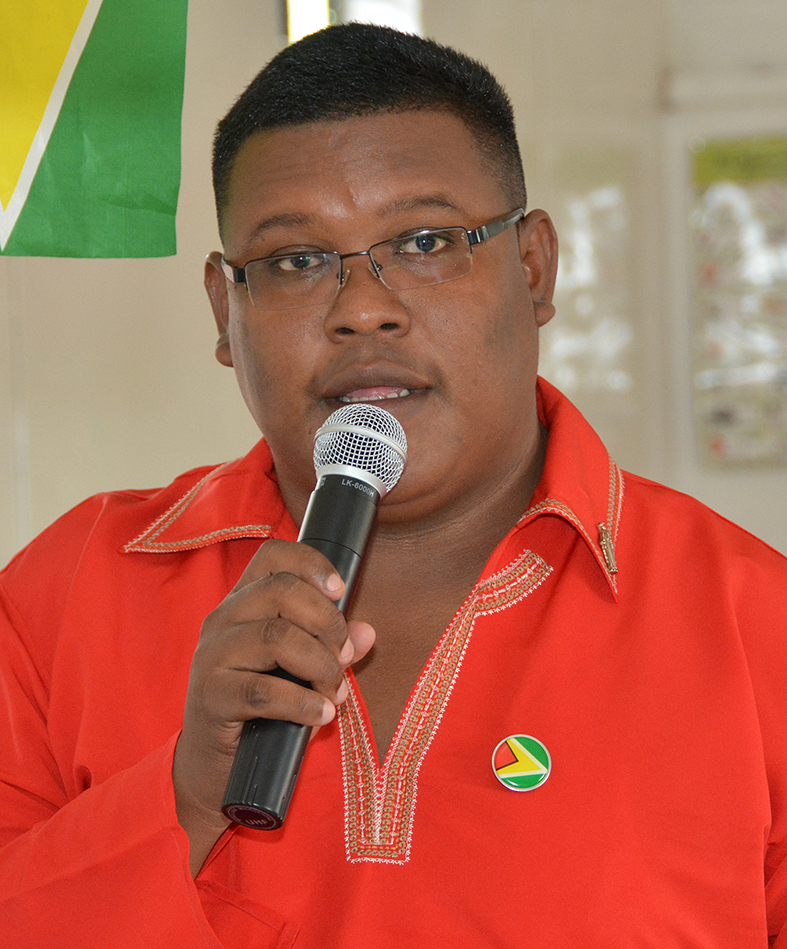Shortages of drugs, particularly those used for the treatment of malaria, are continuing to put a strain on health services in Region One, says Regional Chairman Brentnol Ashely.
Ashley told Stabroek News on Tuesday that the region has for some time now been suffering shortages of drugs and medical supplies.
“One drug that we have a shortage of is the first line malaria treatment. I would have seen persons come to my office who would have tested positive for malaria and they were told that there is no medication that can be given to them because of the shortage they are facing,” he added.
This, he said, has been confirmed by checks made by the Regional Democratic Council (RDC) to health centres, including the one in the community of White Water, which serves as a border community between Guyana and Venezuela and is considered a critical health post in the region.
Ashley noted that that while they found that representation would have been made for the supply of drugs over the last few months, to date they have not received any.
“The RDC, through its budgetary allocation, would have gotten $80 plus million dollars for drugs and medical supplies in this year’s budget. To date, we have warranted over $25 million and they have not been supplied from MMU [Materials Management Unit] relating to what we would have warranted and also last year we would have warranted in excess of $70 million and the supply of drugs and medical supply for that wouldn’t have reached 50% of what we would have warranted,” the Chairman said.
“This is putting a strain on all our health facilities across the region, since there are some critical drugs that are needed. For instance, we would have learnt that there were shortages of medications for persons who are diabetic and so forth,” he added.
Ashley also expressed concern regarding the Public Health Ministry’s claim that the situation is under control, particularly since he says there has not been any significant improvement in the provision of drugs and medical supplies over the last two years.
“The RDC at its last sitting on Thursday would have deliberated upon this particular issue in relation to the concerns coming out from across the region because what we find is that even when some of these drugs are supplied to the region, they are either expired or closed to expiration. That is for some of the drugs not all, just a percentage of it which is also putting a setback on the efficient and effective health delivery, providing medication for persons who are diagnosed with common illnesses which can also be chronic, such as hypertension, diabetes, [and] malaria within the region,” the Chairman noted.
Compounding the situation is the continued influx of Venezuelans into the region, which he says puts more pressure on an already heavily burdened regional health system.
“As you may be aware, there has been an influx of Venezuelans to the region owning to the crisis in Venezuela and that is putting a strain on our already depleted medication that we have because we have to cater for our population here and the additional persons who are coming from Venezuela. A few days ago, the Toshao from White Water would have informed me that a child would have passed on and seemingly it would have been from malaria. He would have done a smear and when he went back, the smear test would have shown negative but… eventually the person would have succumbed,” Ashley shared.
“In an area called Corasima, which is a part of the White Water Village, the Village Council would have also expressed concern this morning that several persons from that community would have taken tests [and been] diagnosed with malaria but could not have received treatment from the facilities,” he added.
As a result of the situation, Ashely said the RDC would like to recommend that approval should be given for the region to do its own purchasing of medical supplies utilising its budgetary allocation. “We are have been doing to some extent just that but we would like it to be increased. The quota of financial resources that should be used to get that done should be increased so that at the regional level while we wait on the Ministry of Public Health MMU to do the supply through the warrants provided, we should be given the opportunity to provide the services to our people without them having to go through the challenges they are currently facing,” he added.










